Mufti Mohammad Sayeed: India Kashmir leader dead
- Published
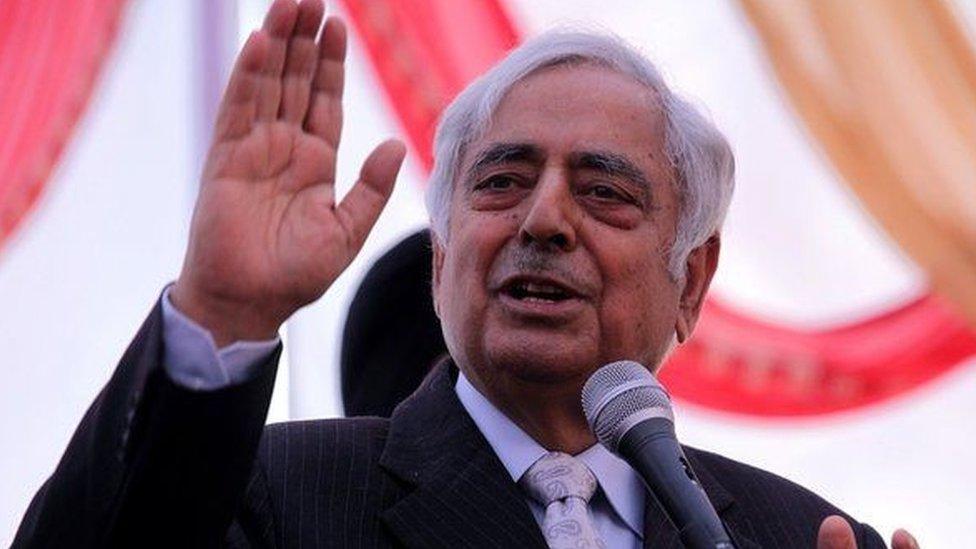
Mr Sayed was also India's first Muslim home minister
India's Kashmir chief minister Mufti Mohammad Sayeed has died after a brief illness, aged 79.
Mr Sayeed, who was admitted to a hospital in Delhi two weeks ago, was suffering from a number of health problems, reports say.
He founded the People's Democratic Party (PDP) and led a coalition government with Prime Minister Narendra Modi's BJP in Kashmir.
His daughter, Mehbooba Mufti, is poised to take over as the new chief minister.
Ms Mufti, who is the president of the PDP in Indian-administered Kashmir, had helped lead her father's party to victory in a fiercely fought state assembly election in December 2014. But no party crossed the 44-seat mark needed to form a government.
The PDP won 28 seats, while the BJP came second with 25 seats.
After weeks of intense negotiations, the two parties agreed to form a coalition government in March.
Indian media called the coalition between Mr Sayeed's Muslim-dominated PDP and India's governing Hindu nationalist BJP a "historic moment".
Jammu and Kashmir education minister Naeem Akhtar told the Press Trust of India that Mr Sayeed had died early on Thursday.
Several leaders have condoled the death of Mr Sayeed.
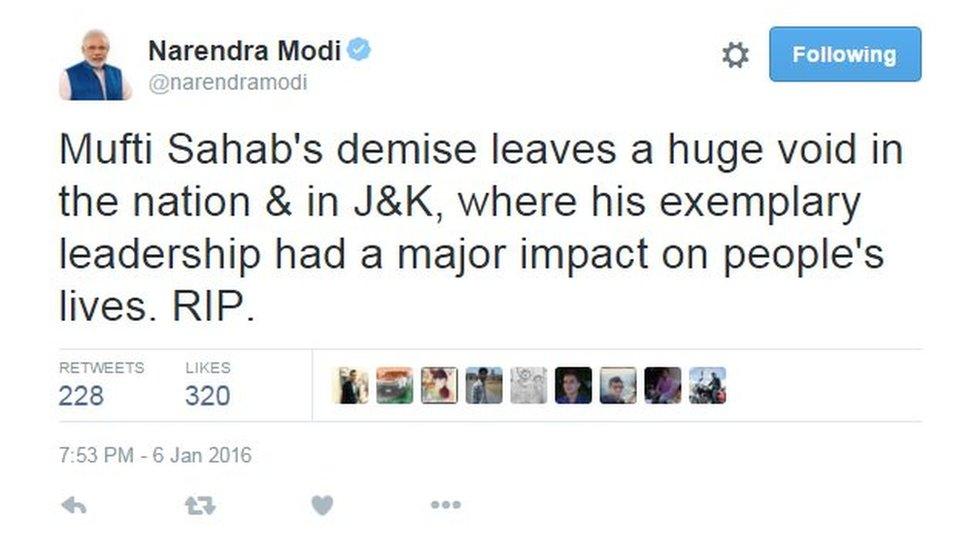
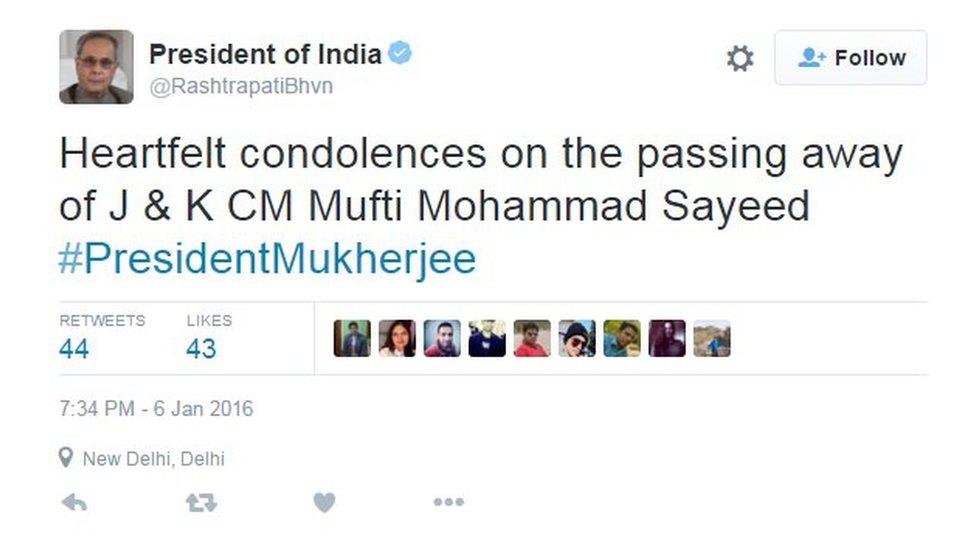
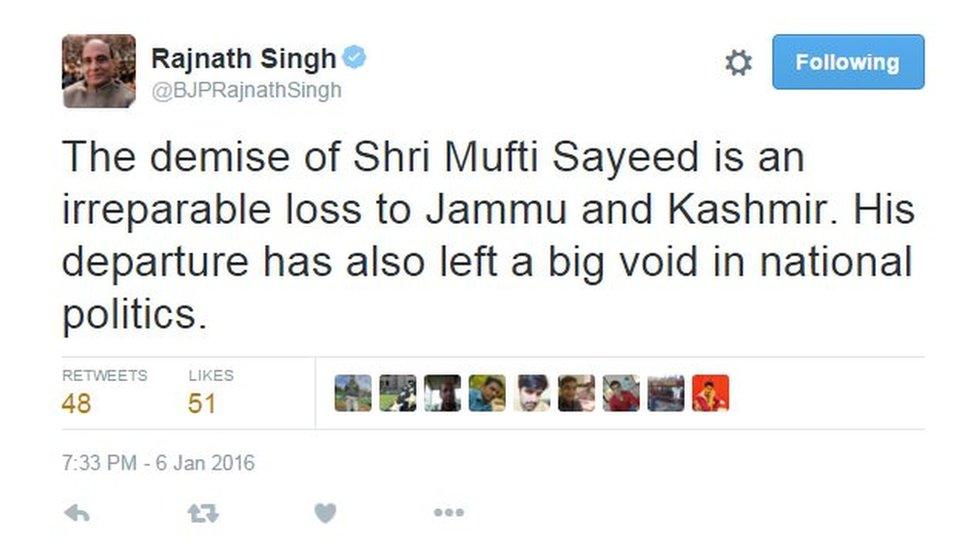
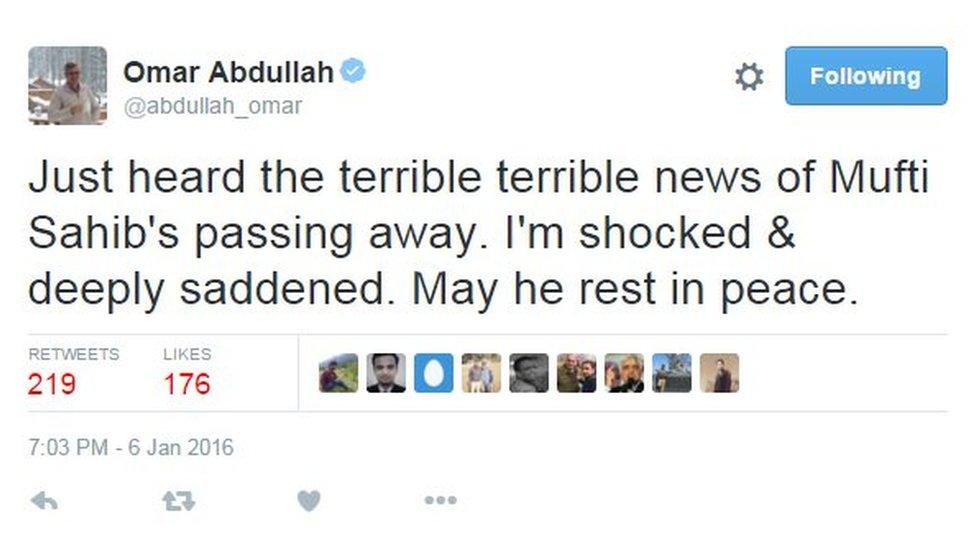
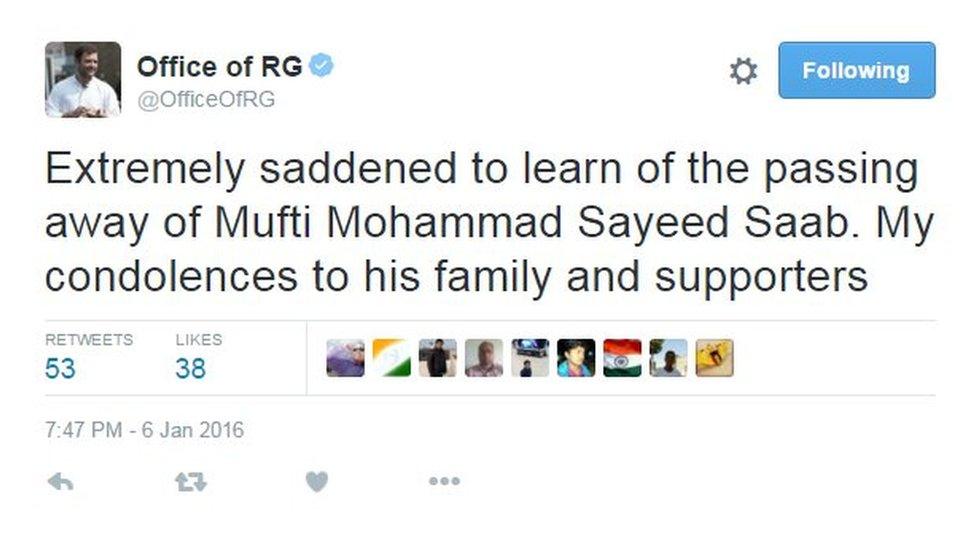
Mr Sayeed, who was also India's first Muslim home minister, was born in 1936.
His political career began in 1950 with the regional National Conference party.
He soon fell out with it, joined the Congress Party and played a key role in establishing the party in Kashmir as a key force opposing the National Conference, which then dominated the political landscape.
Mr Sayeed became a state minister in the Congress Party government in 1971.
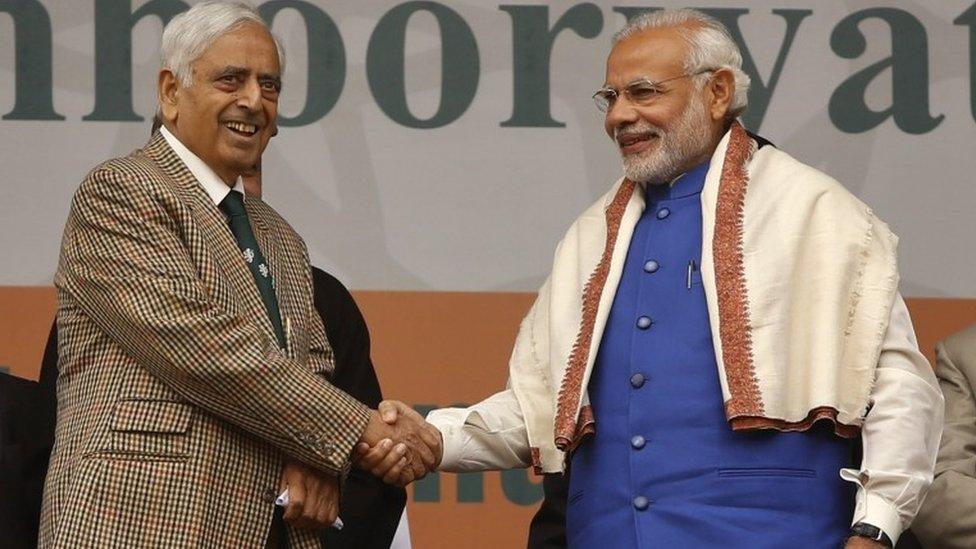
Mr Sayeed (l) led a coalition government with Prime Minister Narendra Modi's BJP in Kashmir
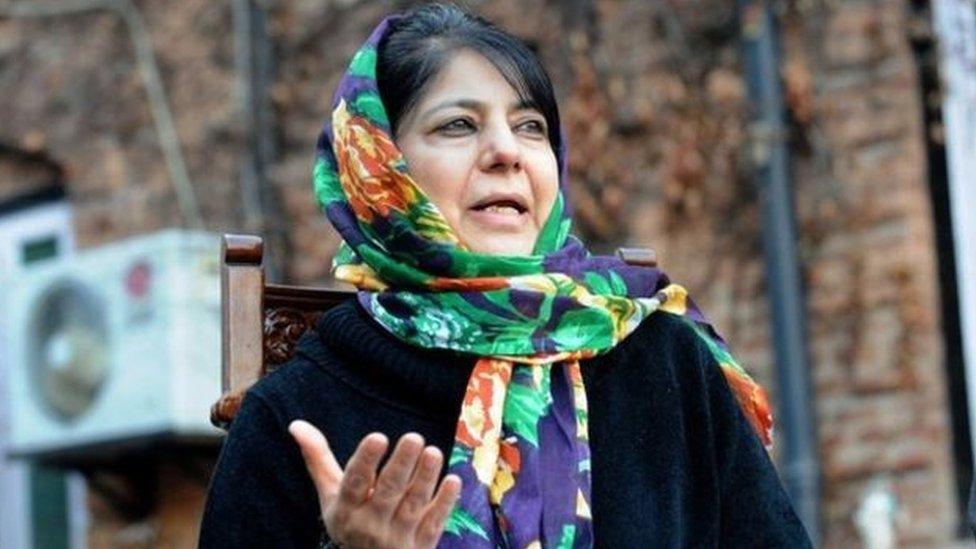
Mehbooba Mufti is poised to take over the new chief minister of India's Kashmir
But this success was followed by a string of defeats - he lost the next two elections.
However Mr Sayeed bounced back and in 1989 became India's first Muslim home minister.
His term in office was, however, overshadowed by the kidnapping of his daughter, Rubaiyya Sayeed, by Kashmiri militants.
She was released in exchange for some militants, but the episode left a dent on the government's prestige and her father's political career.
Mr Sayeed changed allegiance frequently - he left the National Conference to join the Congress Party, which he left for the Janata Dal, rejoined the Congress and finally quit it to form his own PDP.
Kashmir, claimed by both India and Pakistan in its entirety, has been a flashpoint for more than 60 years, and the South Asian rivals have fought two wars over the region.